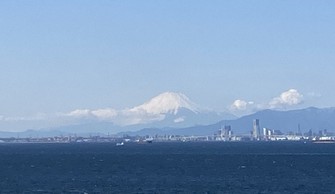
The move comes as the Japanese government promotes carbon capture and storage, known as CCS, and sets a goal of putting the technology into practical use by 2030. However, the technology costs are high, and overseas projects could face local opposition.
CCS technology captures CO2 from industrial plants before it can be emitted into the atmosphere and injects it deep underground for long-term storage.
Trading house Mitsubishi Corp., major oil distributor Eneos Corp., and two other companies are studying a project to liquefy CO2 emitted from thermal power plants and oil factories in the Tokyo Bay area and ship it to Malaysia for storage there.
About 3 million tons of CO2 is expected to be collected annually under the project, which the companies aim to start by fiscal 2030.
Chubu Electric Power Co., based in Nagoya, central Japan, has also started, along with other companies, a feasibility study on collecting CO2 from plants and factories at the Port of Nagoya area for storage in Indonesia.
Trading firm Sumitomo Corp. has tied up with JFE Steel Corp. and others to conduct a feasibility study to aggregate CO2 from the Setouchi and Shikoku regions in western Japan and then transport the emissions to Australia for storage.
Companies, including Osaka Gas Co., are also considering a project to store CO2 from domestic industrial plants in the Asia-Pacific region.
However, environmental groups have criticized Japan's push for CCS as not being an effective climate change measure, given that the technology enables the continued use of fossil fuels and the emission of greenhouse gases.
Friends of the Earth Malaysia has protested to the Japanese government and others over the possible storage of CO2 in Malaysia, blasting the exportation of emissions to "Global South" countries as "nothing but carbon colonialism."
"It is an unproven technology with high risk, high cost and comes with long-term liability," the group said in an open letter made public in March. "Japan must cut the emissions at the source and should not export or dump CO2 in other countries."